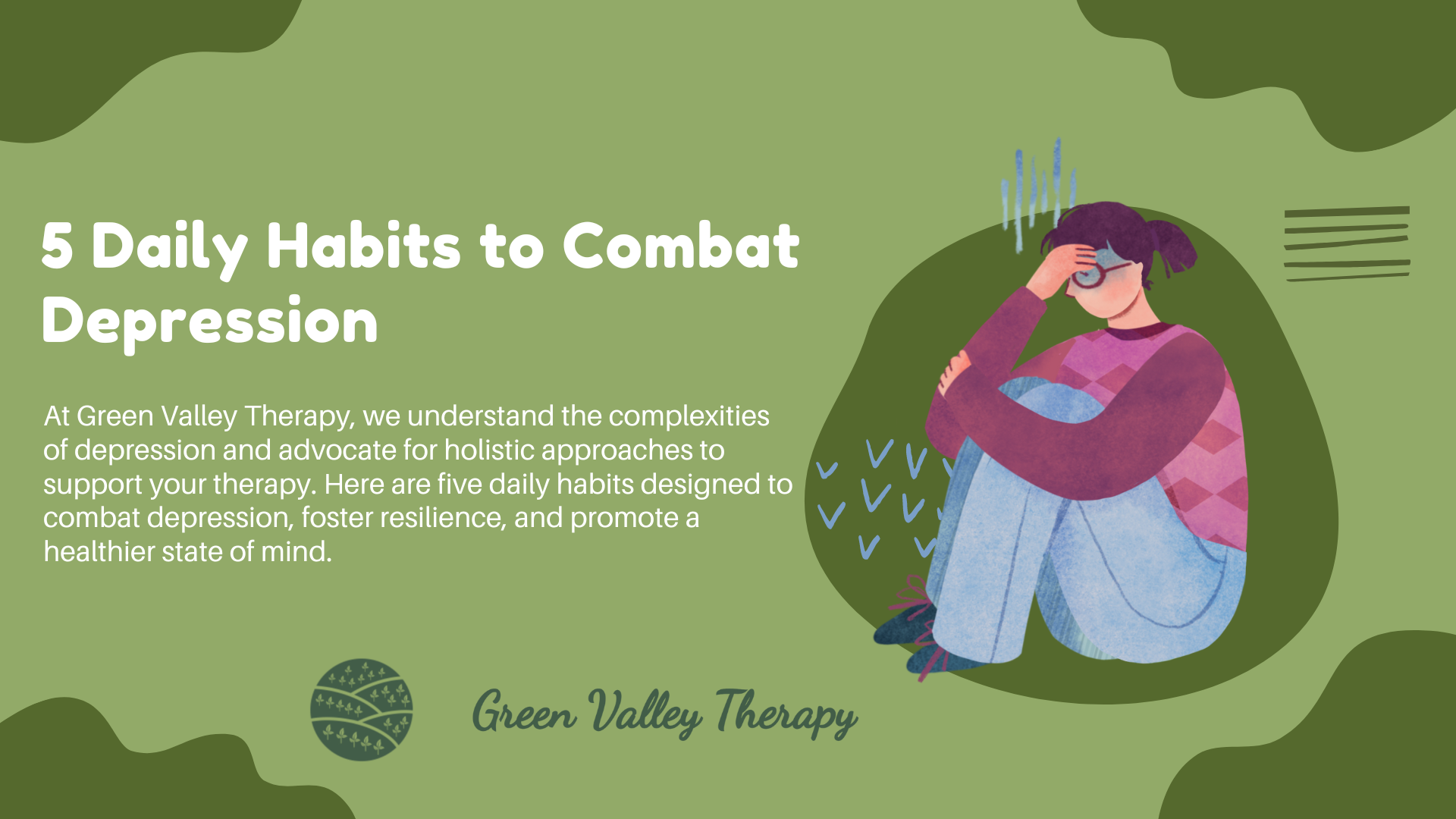5 Daily Habits to Combat Depression
Depression can feel like an insurmountable obstacle, but incorporating simple daily habits into your routine can significantly impact your mental health.
At Green Valley Therapy, we understand the complexities of depression and advocate for holistic approaches to support your therapy. Here are five daily habits designed to combat depression, foster resilience, and promote a healthier state of mind.
Maintain a Routine
Having a daily routine can be really beneficial for people with depression. It can provide structure and a sense of normalcy that can be very helpful when motivation is low.
By establishing a set schedule, you can navigate your day and accomplish tasks, from the moment you wake up to when you go to sleep. Starting with consistent sleep and meal times can be a great way to build a framework for your day and help you stay on track.
Engage in Physical Activity
Regular exercise can be an effective strategy to combat depression. It can stimulate the release of endorphins, which are the body's natural hormones that can help alleviate symptoms of depression.
You don't necessarily have to engage in rigorous or intense workouts to benefit from exercise; even simple activities such as daily walks, yoga, or gentle stretching can be helpful in improving your mood and energy levels.
“Experts recommend aiming for at least 30 minutes of physical activity each day to achieve the full range of benefits.
Practice Mindfulness and Meditation
Incorporating mindfulness and meditation practices into your daily routine can help to alleviate stress, anxiety, and depression symptoms. By staying present and engaged at the moment, you can cultivate a sense of inner calm and mental clarity.
There are a variety of techniques available, including deep breathing exercises, guided meditation, and mindfulness-based cognitive therapy (MBCT). These practices can be easily integrated into your daily life and may offer numerous mental health benefits.
Prioritize Nutritious Foods
The food you consume can have a significant impact on your overall well-being and mood. If you want to feel more energetic and positive, it's important to maintain a diet that includes plenty of fruits, vegetables, lean proteins, and whole grains that provide essential nutrients to your body.
On the other hand, processed foods, sugary snacks, and excessive caffeine can cause mood crashes and worsen depressive symptoms. Therefore, it's recommended to limit the intake of such foods to maintain a healthy and balanced diet.
Connect with Others
When experiencing depression, isolation can lead to further deepening of symptoms. Therefore, it is essential to make an effort to seek social connections. Spending time with your loved ones, joining support groups, or participating in community activities can help you feel better.
In case face-to-face interaction feels too overwhelming, starting with digital communication or attending virtual events related to your interests or hobbies can also be helpful. Remember that social support is a crucial part of managing depression, and seeking it out can make a significant difference in your well-being.
A Word From Green Valley Therapy
Combating depression requires a multifaceted approach, and integrating these daily habits can bolster your mental health and support your treatment plan. At Green Valley Therapy, we're dedicated to providing resources and support to help you navigate your journey through depression. Get our Therapy for Depression Services in Frederick County, Maryland, and learn more about how our services can help you develop a personalized strategy to combat depression.
Remember, these habits are supplementary to professional treatment options such as psychotherapy, medication, or a combination of both, as recommended by your healthcare provider. Taking small steps every day can lead to significant changes in your overall well-being.



